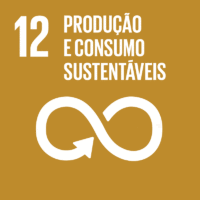Ciência_Iscte
Publicações
Descrição Detalhada da Publicação
Título Revista
Sustainability
Ano (publicação definitiva)
2020
Língua
Inglês
País
Suíça
Mais Informação
Web of Science®
Scopus
Google Scholar
Esta publicação não está indexada no Overton
Abstract/Resumo
The sharing economy (SE) has drawn significant attention from several society stakeholders in the last five years. While business actors are interested in financial opportunities to meet consumer needs, new business models, academia and governmental organisations are concerned with potential unintended effects on society and the environment. Despite its notable global growth, there is still a lack of more solid ground in understanding its origins and respective mechanisms through which it has been evolving as a category. This research addresses the problematics of the origins and ascendency of the SE by examining the process by which it is arising as a new category, searching for conceptual clarification, and pinpointing the legitimacy granted by stakeholders. Our guiding research questions are: how the SE was formed and evolved as a category, and as a category, is the SE legitimate? Additionally, we attempt to identify the nature of the SE as a category. Making a historical analysis of the expression SE and its equivalents, this paper deepens the discussion about the SE’s nature by providing evidence that it has predominantly been formed by emergence processes, comprising social movement, similarity clustering, and truce components, which render the SE a particular case of category formation and allow communication, entrepreneurship, regulation, and research about what it is. Moreover, the findings reveal a generalised legitimacy granted to the SE by a vast number of stakeholders, although still lacking the consolidation of socio-political legitimation. The SE’s nature seems to fall into a metaphorical approach, notably, the notion of radial categories.
Agradecimentos/Acknowledgements
--
Palavras-chave
Sharing economy,Category formation,Emergence,Social movement,Similarity clustering,Truce,Radial category,Identity legitimation,Stakeholders,Business models
Classificação Fields of Science and Technology
- Economia e Gestão - Ciências Sociais
- Outras Ciências Sociais - Ciências Sociais
- Outras Humanidades - Humanidades
Registos de financiamentos
| Referência de financiamento | Entidade Financiadora |
|---|---|
| UIDB/00315/2020 | Fundação para a Ciência e a Tecnologia |
Contribuições para os Objetivos do Desenvolvimento Sustentável das Nações Unidas
Com o objetivo de aumentar a investigação direcionada para o cumprimento dos Objetivos do Desenvolvimento Sustentável para 2030 das Nações Unidas, é disponibilizada no Ciência_Iscte a possibilidade de associação, quando aplicável, dos artigos científicos aos Objetivos do Desenvolvimento Sustentável. Estes são os Objetivos do Desenvolvimento Sustentável identificados pelo(s) autor(es) para esta publicação. Para uma informação detalhada dos Objetivos do Desenvolvimento Sustentável, clique aqui.

 English
English




